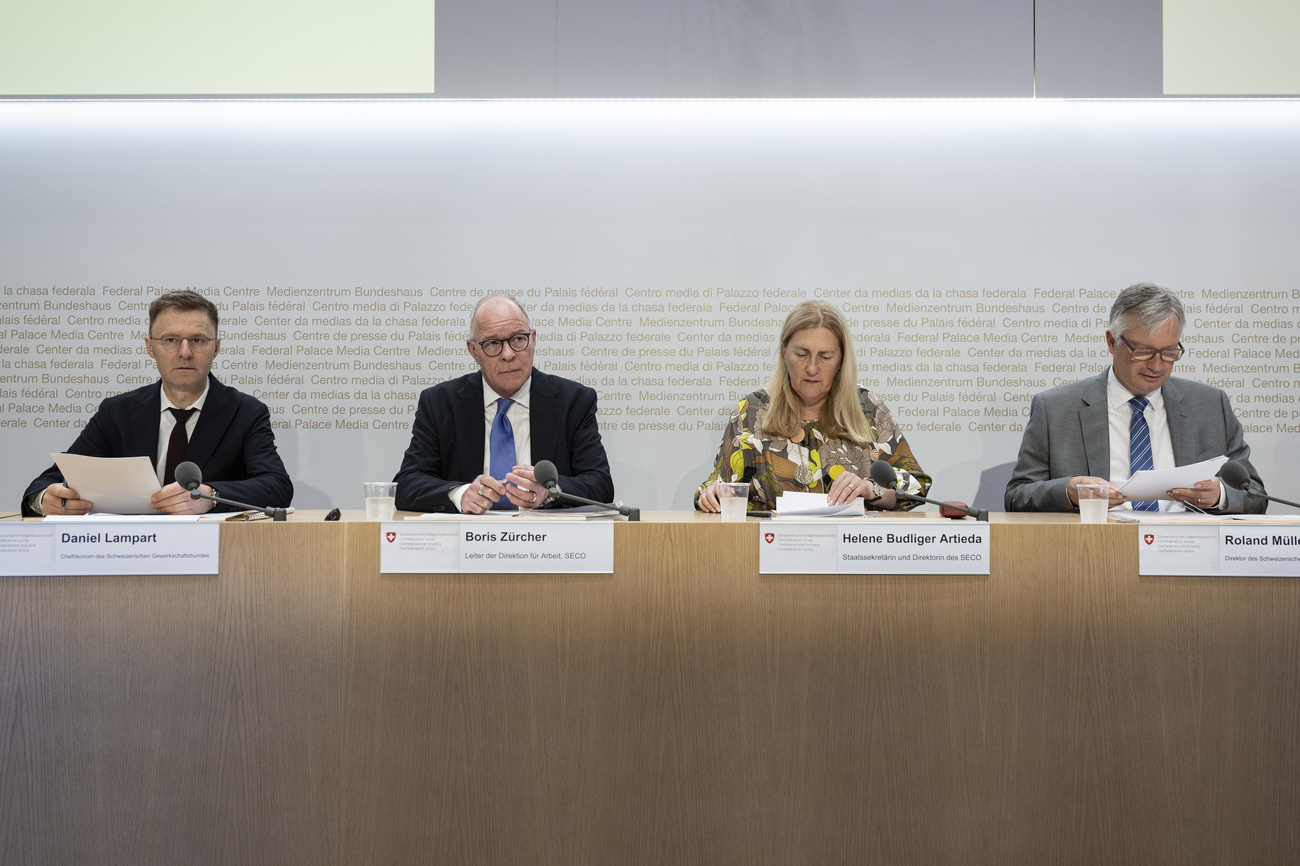
One in five checks reveals violations of Swiss labour regulations

Around one in five checks carried out on workers employed in Switzerland has revealed violations of Swiss wage and working conditions. Swiss employers also engaged in wage dumping when employing foreign workers, a government report has found.
Check out our selection of newsletters. Subscribe here.
This was announced by the State Secretariat for Economic Affairs (SECO) in Bern on Monday in a 2023 report on ancillary measures in the free movement of persons and the fight against undeclared work.
With the agreement on the free movement of persons with the European Union, prior checks as a prerequisite for issuing a work permit were abolished in 2004. Ancillary measures were introduced in Switzerland to prevent pressure on wages which might result from the opening up of the labour market.
In sectors without a collective labour agreement (CLA), the rate at which wage undercutting occurred at the inspected companies was 21%, the report shows. In sectors with generally binding employment contracts, 23% of inspected companies had broken the rules.
+ Switzerland broadly positive about resuming EU talks
Swiss companies employing foreign workers were also inspected by the competent authorities. Wage dumping was found in 11% of the inspections at these companies. In the case of self-employed service providers from abroad, bogus self-employment was suspected in 6% of the 4,718 inspections.
Successful mutual agreement procedures
According to SECO, 1,628 instances of mutual agreement procedures were initiated last year in response to undercutting of the usual wage and working conditions. In all, 81% of the procedures with the companies were concluded successfully. For Swiss companies, this rate was 54%.
+ Swiss wage protection – a model for the EU?
In 2023, the enforcement bodies inspected the pay and working conditions of 158,848 people in 36,587 companies, according to SECO. In all, 7% of Swiss employers, 26% of workers and 31% of self-employed service providers were inspected. The target of 35,000 checks was therefore achieved.
Over 40,000 people checked for undeclared work
SECO said 13,644 companies and 43,563 people were checked as part of the fight against undeclared work. The inspections focussed on the catering industry, the trade industry, and the main and auxiliary construction sectors.
+ One in four Swiss has second job, survey finds
Following the inspections, 12,500 suspicious circumstances were forwarded to the competent authorities for further investigation. In 3,941 cases, measures were taken or sanctions were imposed following the inspections.
Adapted from German by DeepL/dkk/sb
This news story has been written and carefully fact-checked by an external editorial team. At SWI swissinfo.ch we select the most relevant news for an international audience and use automatic translation tools such as DeepL to translate it into English. Providing you with automatically translated news gives us the time to write more in-depth articles.
If you want to know more about how we work, have a look here, and if you have feedback on this news story please write to english@swissinfo.ch.

In compliance with the JTI standards
More: SWI swissinfo.ch certified by the Journalism Trust Initiative





























You can find an overview of ongoing debates with our journalists here . Please join us!
If you want to start a conversation about a topic raised in this article or want to report factual errors, email us at english@swissinfo.ch.